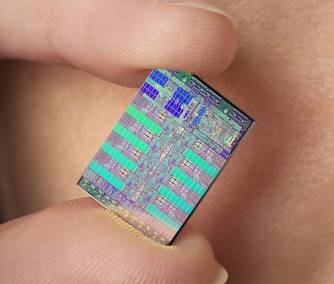Multi-core Computing
Parallel processing, or multi-core compilation, is rather a challenge than a blessing, since it means the era of free ride is over. When the hardware performance kept doubling every 18 months, the same software could be run twice as before by running it on a new hardware. But now it is no longer true, unless the software can somehow exploit the increased parallelism by the new machine.
There are many challenges including how to compile applications, or in particular, how to map code and data onto various heterogeneous as well as homogeneous processor cores, and manage them efficiently. The management must include aspects of not only performance optimization, but of thermal management, energy and power optimization (such as Dynamic Voltage and Frequency Scaling), and reliability (such as soft error resilience). These multi-dimensional, multi-objective problems require innovative ideas and approaches on architecture, compiler, computer-aided design, operating system, and algorithm levels.
In ICCL Lab, we are particularly looking at data management problems for distributed memory architectures such as the Cell processor architecture, where simple scratchpad memories are used instead of power-hungry caches to save power.

Figure 1: Sony/Toshiba/IBM Cell.
Publications
- Software-based Register File Vulnerability Reduction for Embedded Processors, Jongeun Lee and Aviral Shrivastava, ACM Transactions on Embedded Computing Systems (TECS), 13(1s), pp. 38:1-38:20, ACM, November, 2013.
- Return Data Interleaving for Multi-Channel Embedded CMPs Systems, Fei Hong, Aviral Shrivastava, and Jongeun Lee, IEEE Transactions on Very Large Scale Integration Systems (TVLSI), 20(7), pp. 1351-1354, IEEE, July, 2012.
- Static Analysis of Register File Vulnerability, Jongeun Lee and Aviral Shrivastava, IEEE Transactions on Computer-Aided Design of Integrated Circuits and Systems (TCAD), 30(4), pp. 607-616, IEEE, April, 2011.
- A Compiler-Microarchitecture Hybrid Approach to Soft Error Reduction for Register Files, Jongeun Lee and Aviral Shrivastava, IEEE Transactions on Computer-Aided Design of Integrated Circuits and Systems (TCAD), 29(7), pp. 1018-1027, IEEE Press, July, 2010.
- Cache Vulnerability Equations for Protecting Data in Embedded Processor Caches from Soft Errors, Aviral Shrivastava, Jongeun Lee*, and Reiley Jeyapaul, ACM SIGPLAN Notices (LCTES ’10), 45(4), pp. 143-152, April, 2010.
- A Software-Only Solution to Use Scratch Pads for Stack Data, Aviral Shrivastava, Arun Kannan, and Jongeun Lee*, IEEE Transactions on Computer-Aided Design of Integrated Circuits and Systems (TCAD), 28(11), pp. 1719-1727, November, 2009.